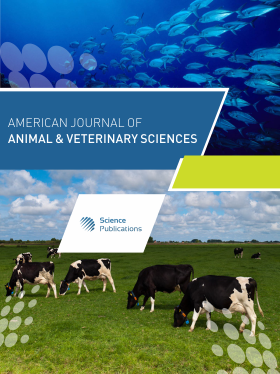Productive and Economic Performances of Magelang Duck Fed on Fermented Kariba Weed
- 1 Universities Diponegoro, Indonesia
Abstract
The duck farming business faces the high feeding costs problem. Kariba Weed (KW) is an alternative feed that has been widely used as a source of ducks' feeding materials. However, a problem exists because KW contains high crude fibre. Fermented KW that contains microbes will reduce the crude fibre content, leading to a good quality of duck meat. This study aimed to perform technical and economic analysis about the Fermented Kariba Weed (FKW) effect on the male Magelang duck’s growth. The research was conducted in Faculty of Animal and Agricultural Sciences, Diponegoro University, Indonesia. The research used 240 male Magelang ducks with 741.61±251.57 g body weight. Research used Randomized Block Design (RBD) with five treatments and six replications. Each experimental unit consisted of eight ducks. The treatments included F0: Ration using non-KW, F1: Rations containing KW fermented with Aspergillus niger (AFKW), F2: Rations containing KW fermented with Rhizopus (RFKW), F3: Rations containing KW fermented with Trichoderma sp (TFKW) and F4: Rations containing KW fermented with Termite digestive tract enzymes (TDTFKW). Research lasted 6 weeks. This research's parameters were feed consumption, daily weight gain, Feed Conversion Ratio (FCR), mortality, final weight gain and economic feasibility indicators. The results showed a significant difference in duck feed and showed the best effect in the AFKW treatment. The AFKW gave the best results. Feed consumption was significantly different (p = 0.002) among the other treatments. The results showed that giving AFKW in duck feed could reduce cholesterol and triglyceride levels. The AFKW adoption was economically feasible when the farmer raised 2,000 ducks. The economic feasibility analysis showed an investment value requirement of Indonesian Rupiah (IDR) 89,000,000, with a net present value in IDR 148,000,000, with a payback period of 21 months, a benefit-cost ratio of 1.3, Internal Rate of Return (IRR) was 51.06 and price sensitivity analysis was 23%. The AFKW use on farmers’ scale could lower cholesterol and triglycerides levels in duck meat and also provided the highest income.
DOI: https://doi.org/10.3844/ajavsp.2021.289.294

- 5,198 Views
- 3,983 Downloads
- 2 Citations
Download
Keywords
- Fermented Kariba Weed (FKW)
- Economic Analysis
- Magelang Duck
- Technical Parameters
